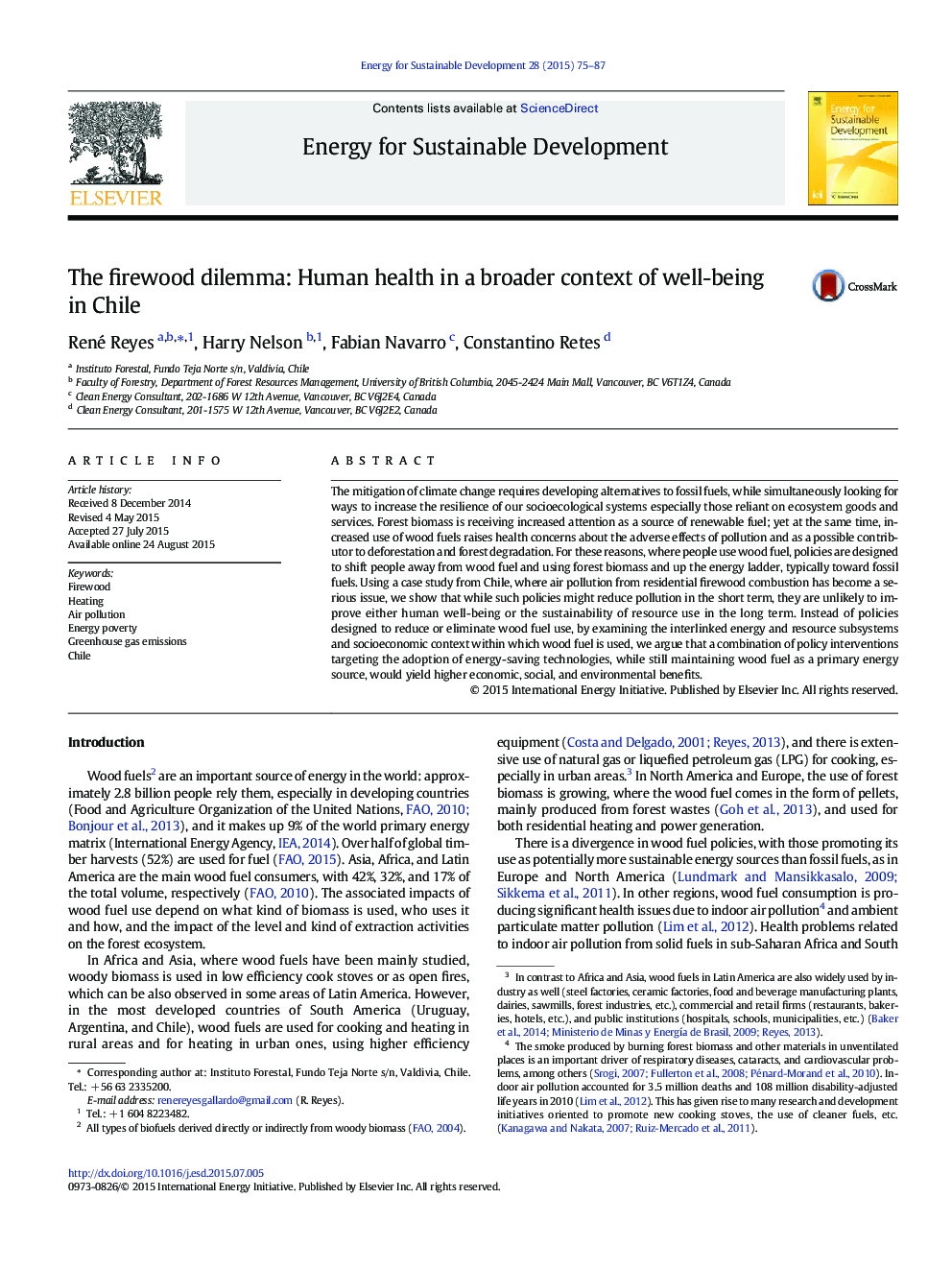| Article ID | Journal | Published Year | Pages | File Type |
|---|---|---|---|---|
| 7453885 | Energy for Sustainable Development | 2015 | 13 Pages |
Abstract
The mitigation of climate change requires developing alternatives to fossil fuels, while simultaneously looking for ways to increase the resilience of our socioecological systems especially those reliant on ecosystem goods and services. Forest biomass is receiving increased attention as a source of renewable fuel; yet at the same time, increased use of wood fuels raises health concerns about the adverse effects of pollution and as a possible contributor to deforestation and forest degradation. For these reasons, where people use wood fuel, policies are designed to shift people away from wood fuel and using forest biomass and up the energy ladder, typically toward fossil fuels. Using a case study from Chile, where air pollution from residential firewood combustion has become a serious issue, we show that while such policies might reduce pollution in the short term, they are unlikely to improve either human well-being or the sustainability of resource use in the long term. Instead of policies designed to reduce or eliminate wood fuel use, by examining the interlinked energy and resource subsystems and socioeconomic context within which wood fuel is used, we argue that a combination of policy interventions targeting the adoption of energy-saving technologies, while still maintaining wood fuel as a primary energy source, would yield higher economic, social, and environmental benefits.
Related Topics
Physical Sciences and Engineering
Energy
Energy (General)
Authors
René Reyes, Harry Nelson, Fabian Navarro, Constantino Retes,
